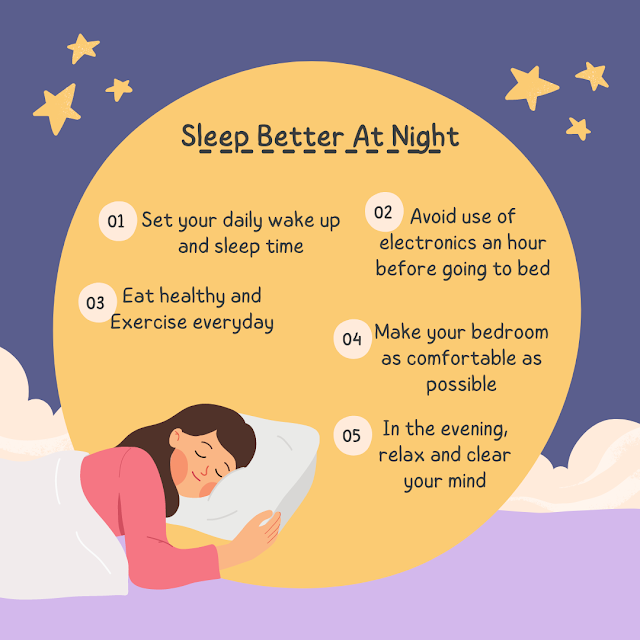The Magic of Sleeping. How to make it happen?

I recall that the morning after a late-night New Year's Eve celebration, I woke up very, very late and felt dizzy (i dont drink, so it was not a hangover). Unfortunately, I had to fly the following day, and the entire time, I was stumbling and mumbling. As I generally get up early, this was a significant disruption. The effect dissipated soon as my mum ensured that I was in bed on time and took good rest. If you don't get enough sleep, you appear worn out. Sleep is not something to be tampered with frequently, as it creates a kind of sleep debt. Chronic insomnia will make you ill. Yes, physically ill. I have spoken about the benefits of sleep in the previous post . On an average, an adult needs 7-9 hrs of sleep. Kids need 9-13 hours and infants need 12-15 hours of sleep everyday. Here are a few tips and tricks to make your slumber truly magical. 1. Have a regular sleep time every day - It helps your body to set according to your circadian cycle (aka body clo...



